 W
WMarie Henri d'Arbois de Jubainville was a French historian, philologist and Celtic scholar.
 W
WMargaret Bennett is a Scottish writer, folklorist, ethnologist, broadcaster, and singer. Her main interests lies in the field of traditional Scottish folk culture and cultural identity of the Scots in Scotland and abroad. The late Hamish Henderson, internationally distinguished poet and folklorist, said about her: Margaret embodies the spirit of Scotland.
 W
WDaniel Anthony Binchy (1899–1989) was a scholar of Irish linguistics and Early Irish law.
 W
WHelmut Birkhan is an Austrian philologist who is Professor Emeritus of Ancient German Language and Literature and the former Managing Director of the Institute for Germanic Studies at the University of Vienna.
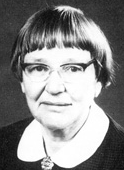 W
WRachel Bromwich born Rachel Sheldon Amos, was a British scholar. Her focus was on medieval Welsh literature, and she taught Celtic Languages and Literature in the Department of Anglo-Saxon, Norse and Celtic at Cambridge, from 1945 to 1976. Among her most important contributions to the study of Welsh literature is Trioedd Ynys Prydein, her edition of the Welsh Triads.
 W
WGeorge Buchanan was a Scottish historian and humanist scholar. According to historian Keith Brown, Buchanan was "the most profound intellectual sixteenth century Scotland produced." His ideology of resistance to royal usurpation gained widespread acceptance during the Scottish Reformation. Brown says the ease with which King James VII was deposed in 1689 shows the power of Buchananite ideas.
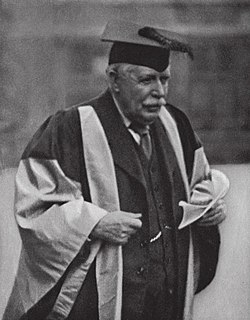 W
WHector Munro Chadwick was an English philologist. Chadwick was the Elrington and Bosworth Professor of Anglo-Saxon and the founder and head of the Department for Anglo-Saxon and Kindred Studies at the University of Cambridge. Chadwick was well known for his encouragement of interdisciplinary research on Celts and Germanic peoples, and for his theories on the Heroic Age in the history of human societies. Chadwick was a tutor of many notable students and the author of numerous influential works in his fields of study. Much of his research and teaching was conducted in cooperation with his wife, former student and fellow Cambridge scholar Nora Kershaw.
 W
WNora Kershaw Chadwick CBE FSA FBA was an English philologist who specialized in Anglo-Saxon, Celtic and Old Norse studies.
 W
WThomas Mowbray Charles-Edwards is an emeritus academic at Oxford University. He formerly held the post of Jesus Professor of Celtic and is a Professorial Fellow at Jesus College.
 W
WHilda Roderick Ellis Davidson was an English folklorist. She was a scholar at the University of Cambridge and The Folklore Society, and specialized in the study of Celtic and Germanic religion and folklore.
 W
WHenri-Georges Dottin was a French philologist, Celtic scholar and politician. His magnum opus, La langue gauloise (1918), remained the reference introduction to the Gaulish language until the publication of Pierre-Yves Lambert's La langue gauloise in 1994. It is still widely used today as a textbook in Celtic studies.
 W
WGeorges Edmond Raoul Dumézil was a French philologist, linguist, and religious studies scholar who specialized in comparative linguistics and mythology. He was a professor at Istanbul University, École pratique des hautes études and the Collège de France, and a member of the Académie Française. Dumézil is well known for his formulation of the trifunctional hypothesis on Proto-Indo-European mythology and society. His research has had a major influence on the fields of comparative mythology and Indo-European studies.
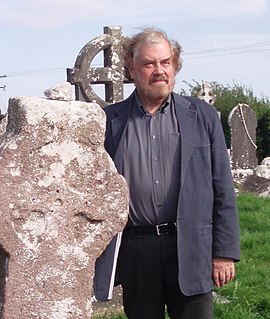 W
WPeter Berresford Ellis is a British historian, literary biographer, and novelist who has published over 98 books to date either under his own name or his pseudonyms Peter Tremayne and Peter MacAlan. He has also published 100 short stories. Under Peter Tremayne, he is the author of the international bestselling Sister Fidelma historical mystery series. His work has appeared in 25 languages.
 W
WFrançois Falc'hun was a French linguist known for his theories about the origin of the Breton language. He was also an ordained Canon in the Catholic clergy.
 W
WCharles Jules-Joseph de Gaulle was a French writer who was a pioneer of Pan-Celticism and the bardic revival. He is also known as Charlez Vro-C'hall, the Breton language version of his name. He was the uncle of the army officer and statesman Charles de Gaulle.
 W
WSir William Duguid Geddes was a Scottish scholar and educationalist, who promoted the cause of classical Greek at the University of Aberdeen. Geddes's classical translations, grammars and scholarship contributed to publications both written with collaborators and edited in series. One of the outstanding scholars of his generation in Scotland, he was the architect of the fusion of the modern University of Aberdeen and its High Victorian development
 W
WKenneth John George is a Cornish oceanographer, poet, and linguist from Cornwall in the UK. He is noted as being the originator of Kernewek Kemmyn, an orthography for the revived Cornish language which he claims is more faithful to Middle Cornish phonology than its precursor,.
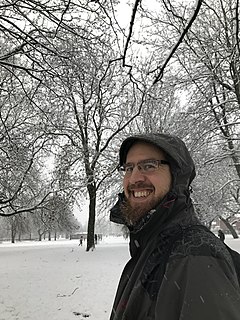 W
WAlaric Hall is a British philologist who is an associate professor of English and director of the Institute for Medieval Studies at the University of Leeds. He has, since 2009, been the editor of the academic journal Leeds Studies in English and its successor Leeds Medieval Studies.
 W
WAnton Gerard van Hamel was a Dutch scholar, best known for his contributions to Celtic and Germanic studies, especially those relating to literature, linguistics, philology and mythology. He is not to be confused with his uncle, Anton Gerard van Hamel, who was a theologian, professor of French and editor of De Gids.
 W
WAlfred Theophil Holder, was chief librarian of the Baden State Library in Karlsruhe. He was an Austrian-German writer and student of several ancient languages including Celtic, Germanic, and Latin. He is best known for his translations of Horace, Caesar and Tacitus as well as for his three volume Celtic vocabulary entitled: Alt-celtischer Sprachschatz.
 W
WJesús Javier de Hoz Bravo, was a Spanish philologist and Catedrático.
 W
WDouglas Ross Hyde, known as An Craoibhín Aoibhinn, was an Irish academic, linguist, scholar of the Irish language, politician and diplomat who served as the first president of Ireland from June 1938 to June 1945. He was a leading figure in the Gaelic revival, and the first President of the Gaelic League, one of the most influential cultural organisations in Ireland at the time.
 W
WHenry Jenner was a British scholar of the Celtic languages, a Cornish cultural activist, and the chief originator of the Cornish language revival.
 W
WCamille Jullian was a French historian, philologist, archaeologist and historian of literature.
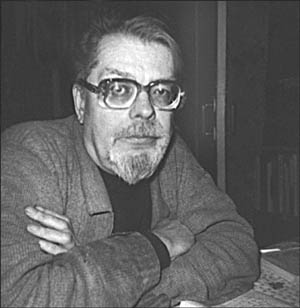 W
WAndrey Aleksandrovich Korolev was a Soviet and Russian philologist, PhD, a scholar in Indo-European and Oriental studies. His main works concerned Celtic and Hittite and other languages of Asia Minor.
 W
WWolfgang Krause was a German philologist and linguist. A professor at the University of Göttingen for many years, Krause specialized in comparative linguistics, and was an authority on Celtic studies, Tocharian languages, Germanic studies, Old Norse and particularly runology.
 W
WVenceslas Kruta is a French archaeologist and historian. He is the director of European protohistory studies at the École pratique des Hautes Études (EPHE), and Professor emeritus at the Sorbonne University. Kruta has also directed the Centre d'Études Celtiques in Paris and the journal Études Celtiques, and has chaired the editorial board of the journal Gallia (CNRS).
 W
WThéophile Malo Corret de la Tour d'Auvergne was a French officer named by Napoleon as the "first grenadier of France". He was also a celtomaniac antiquarian who introduced the words "dolmen" and "menhir" into general archaeological usage.
 W
WWinfred Philip Lehmann was an American linguist who specialized in historical, Germanic, and Indo-European linguistics. He was for many years a professor and head of departments for linguistics at the University of Texas at Austin, and served as president of both the Linguistic Society of America and the Modern Language Association. Lehmann was also a pioneer in machine translation. He lectured a large number of future scholars at Austin, and was the author of several influential works on linguistics.
 W
WEdward Lhuyd FRS was a Welsh naturalist, botanist, linguist, geographer and antiquary. He is also named in a Latinate form as Eduardus Luidius.
 W
WSir John Edward Lloyd was a Welsh historian, He was the author of the first serious history of the country's formative years, A History of Wales from the Earliest Times to the Edwardian Conquest (1911).
 W
WJoseph Loth was a French linguist and historian who specialised in the study of Celtic languages.
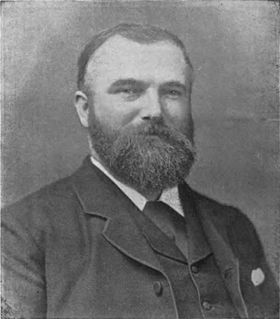 W
WAlexander Macbain was a Scottish philologist, best known today for An Etymological Dictionary of the Gaelic Language (1896).
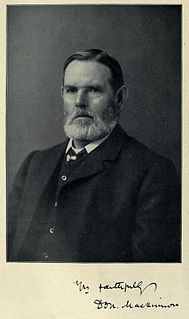 W
WDonald MacKinnon (1839–1914), born on Colonsay, an island in the Scottish Inner Hebrides, was a Celtic scholar, the first elected Professor of Celtic languages, literature, history and antiquities at Edinburgh University, a chair he occupied from 1882 to the year of his death in 1914. He is known particularly for his edition and translation of the so-called Glenmasan manuscript, and also catalogued the manuscripts in the Advocates Library collection.
 W
WCarl Johan Sverdrup Marstrander was a Norwegian linguist, known for his work on the Irish language. His works, largely written in Norwegian, on the Celtic and Norse components in Norwegian culture, are considered important for modern Norway.
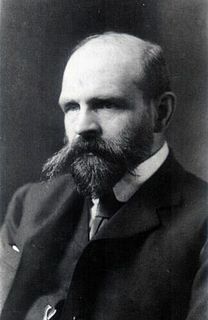 W
WKuno Meyer was a German scholar, distinguished in the field of Celtic philology and literature. His pro-German stance at the start of World War I in the United States was a source of controversy. His brother was the distinguished classical scholar, Eduard Meyer.
 W
WDean Arthur Miller was an American historian who was Professor of History at the University of Rochester. He specialized in the classics, Celtic studies and Indo-European studies, with a particular focus on Heroic poetry.
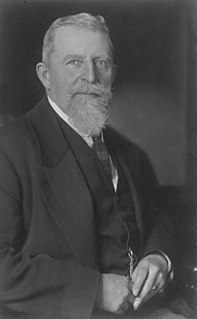 W
WRudolf Much was an Austrian philologist and historian who specialized in Germanic studies. Much was Professor and Chair of Germanic Linguistic History and Germanic Antiquity at the University of Vienna, during which he tutored generations of students and published a number of influential works, some of which have remained standard works up to the present day.
 W
WJohn O'Hart (1824–1902) was an Irish genealogist. He was born in Crossmolina, County Mayo, Ireland. A committed Roman Catholic and Irish nationalist, O'Hart had originally planned to become a priest but instead spent two years as a police officer. He was an Associate in Arts at the Queen's University, Belfast. He worked at the Commissioners of National Education during the years of the Great Famine. He worked as a genealogist and took an interest in Irish history. He died in 1902 in Clontarf near Dublin, at the age of 78.
 W
WNatalia Andreyevna O'Shea is a Russian harpist, singer-songwriter, linguist and band leader of Melnitsa (folk-rock), Clann Lir and Romanesque (folk). Earlier she took part in the Till Eulenspiegel project (folk), for which she was a vocalist, author and co-author of many songs.
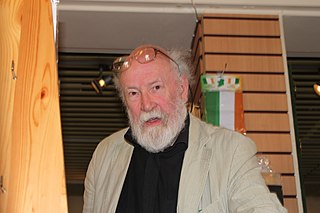 W
WPádraig Ó Snodaigh is an Irish language activist, poet, writer and publisher. He worked for the Irish Electricity Supply Board, and later in the National Museum of Ireland. He is a former president of Conradh na Gaeilge, the Gaelic League.
 W
WWilliam Owen Pughe was a Welsh antiquarian and grammarian best known for his Welsh and English Dictionary, published in 1803, but also known for his grammar books and "Pughisms" (neologisms).
 W
WHolger Pedersen was a Danish linguist who made significant contributions to language science and wrote about 30 authoritative works concerning several languages.
 W
WJulius Pokorny was an Austrian-Czech linguist and scholar of the Celtic languages, particularly Irish, and a supporter of Irish nationalism. He held academic posts in Austrian and German universities.
 W
WEdgar Ghislain Charles Polomé was a Belgian-born American philologist and religious studies scholar. He specialized in Germanic and Indo-European studies and was active at the University of Texas at Austin for much of his career.
 W
WSir John Rhys, was a Welsh scholar, fellow of the British Academy, Celticist and the first professor of Celtic at Oxford University.
 W
WGraham Macdonald Robb FRSL is a British author and critic specialising in French literature.
 W
WRamon Sainero is the director of the Institute of Celtic Studies (IEC) of Spain and Associate Professor and Professor at UNED during the last 37 years.
 W
WWilliam Forbes Skene WS FRSE FSA(Scot) DCL LLD, was a Scottish lawyer, historian and antiquary.
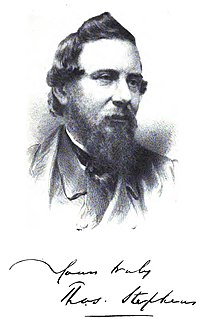 W
WThomas Stephens was a Welsh historian, literary critic, and social reformer. His works include The Literature of the Kymry (1849,1876), Madoc: An Essay on the Discovery of America by Madoc ap Owen Gwynedd in the Twelfth Century (1858,1893), and Orgraff yr Iaith Gymraeg (1859), as well as a number of prize-winning essays presented at eisteddfodau between 1840 and 1858. He was the first Welsh historian and literary critic to employ rigorous scientific methods, and is considered to have done more to raise the standards of the National Eisteddfod than any other Welshman of his time. Stephens also figured prominently in efforts to implement social, educational and sanitary reforms both locally in Merthyr Tydfil and more broadly throughout Wales.
 W
WWhitley Stokes, CSI, CIE, FBA was an Irish lawyer and Celtic scholar.
 W
WJohn Strachan (1862–1907) was a scholar of Sanskrit, Ancient Greek and the Celtic languages. He was a professor at Owens College and the Victoria University of Manchester. He is best remembered for the Thesaurus Palaeohibernicus, a collection of material in Old Irish that he edited together with Whitley Stokes, and for the textbook Old Irish Paradigms and Selections from the Old Irish Glosses, first published in 1904–05 and later revised by Osborn Bergin. Both of these works are still in print.
 W
WJan Pieter Marie Laurens de Vries was a Dutch philologist, linguist, religious studies scholar, folklorist, educator, writer, editor and public official who specialized in Germanic studies.
 W
WCalvert Watkins was an American linguist and philologist, known for his book How to Kill a Dragon. He was a professor of linguistics and the classics at Harvard University and after retirement went to serve as professor-in-residence at UCLA.
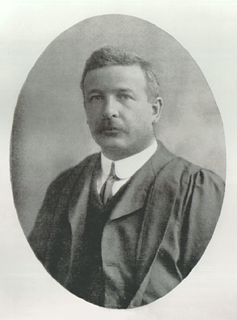 W
WProf William John Watson FRSE LLD was a toponymist, one of the greatest Scottish scholars of the 20th century, and was the first scholar to place the study of Scottish place names on a firm linguistic basis.
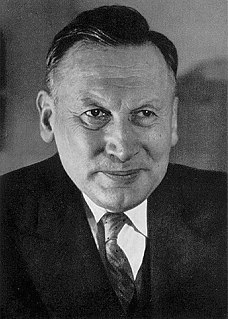 W
WJohann Leo Weisgerber was a Lorraine-born German linguist who also specialized in Celtic linguistics. He developed the "organicist" or "relativist" theory that different languages produce different experiences. He was the son of a village teacher who served as a young man in the German army in Flanders, so could not return to his home city. During World War II his pan-Celticist ideology was co-opted to support the German war effort, as did pro-Polish and pro-Czech ideology on the side of the allies.
 W
WSir Glanmor Williams was one of Wales's most eminent historians.
 W
WSir Ifor Williams, was a Welsh scholar who laid the foundations for the academic study of Old Welsh, particularly early Welsh poetry.
 W
WJohann Kaspar Zeuss was a German historian and founder of Celtic philology. He is credited with demonstrating that the Celtic languages belong to the Indo-European group.